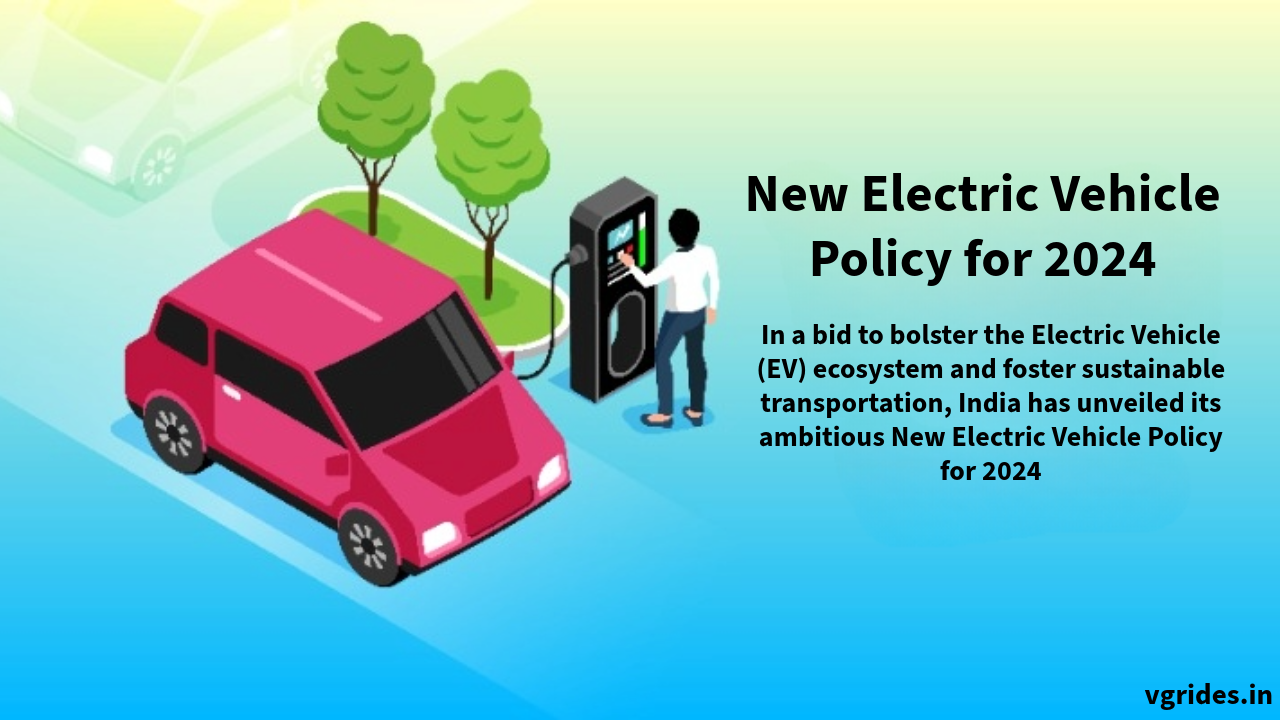India has unveiled its ambitious New Electric Vehicle Policy for 2024, This policy aims to revolutionize the automotive industry by increasing the growth of electric vehicles (EVs) and enhancing the overall EV ecosystem in the country. Let’s dive into the key highlights and implications of this initiative.
Overview of the New Electric Vehicle Policy 2024
The primary objective of the New Electric Vehicle Policy is to fortify the EV ecosystem in India. By incentivizing the production and adoption of electric vehicles, the government aims to reduce dependence on fossil fuels, curb pollution, and pave the way for a greener future. It provides a comprehensive framework to attract investments, promote indigenous manufacturing, and accelerate the transition towards cleaner mobility solutions.
Minimum Investment Requirements
Under this policy, companies are required to make a minimum investment of Rs 4150 Crores (approximately USD 500 million) to establish manufacturing facilities for electric vehicles in India. Unlike previous policies, there is no limit on the maximum investment, allowing companies to scale their operations according to market demand and growth potential. This move is expected to attract significant investments from both domestic and international players, thereby stimulating economic activity and job creation.
Key Conditions and Criteria:
To avail of the benefits offered under the policy, manufacturers must agree to certain conditions and criteria, including:
- Setting up manufacturing facilities in India within three years
- Starting the commercial production of e-vehicles in India
- Achieving 50% domestic value addition within five years
- Meeting localization targets of 25% by the third year and 50% by the fifth year
- Paying a customs duty of 15% on vehicles with a minimum CIF value of USD 35,000 and above for a period of five years for the imported electric vehicles, earlier it was a 100% duty on importing with this new policy companies can get some ease on importing
Bank Guarantee Requirement
Companies are required to back up their investment commitments with a bank guarantee. This guarantee will be invoked if the manufacturer fails to meet the DVA ( Domestic Value Addition )and minimum investment criteria as per the scheme guidelines. This measure acts as a safeguard against non-compliance and support the government’s commitment to promote accountability and transparency in the industry.
Benefits and Impacts
- Increasing the sales of EV vehicles and stimulating demand in the market
- Facilitating the establishment of manufacturing plants, thereby creating employment opportunities for local people
- Promoting healthy competition among companies, driving innovation and quality improvement
- Reducing dependency on crude oil imports and reducing air pollution, thereby contributing to India’s climate goals
- Attracting global companies with substantial investments, further bolstering the country’s position as a hub for sustainable technology
Conclusion
The New Electric Vehicle Policy 2024 represents a significant step towards achieving India’s vision of sustainable and inclusive growth. By promoting the adoption of electric vehicles, the policy not only addresses environmental concerns but also drives economic development and technological innovation in the automotive industry.



